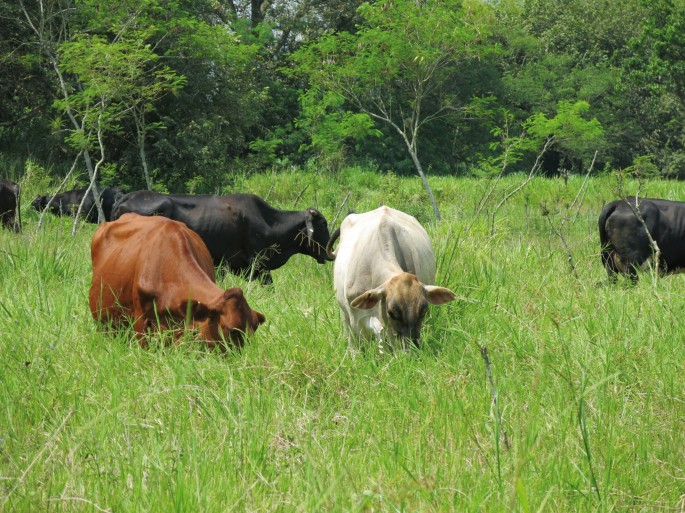
- Select a language for the TTS:
- UK English Female
- UK English Male
- US English Female
- US English Male
- Australian Female
- Australian Male
- Language selected: (auto detect) - EN
Play all audios:
Colombia's sustainable cattle ranching programme restores degraded land while boosting livestock production and making farmland more resilient to climate change. Access through your
institution Buy or subscribe This is a preview of subscription content, access via your institution ACCESS OPTIONS Access through your institution Subscribe to this journal Receive 12 print
issues and online access $209.00 per year only $17.42 per issue Learn more Buy this article * Purchase on SpringerLink * Instant access to full article PDF Buy now Prices may be subject to
local taxes which are calculated during checkout ADDITIONAL ACCESS OPTIONS: * Log in * Learn about institutional subscriptions * Read our FAQs * Contact customer support CHANGE HISTORY * _
08 MAY 2014 In the News Feature 'A new climate for grazing livestock' (_Nature Climate Change_ 4, 321–323; 2014) Olimpo Montes's source of funding was incorrectly stated. He
received a Payment of Environmental Services as compensation for changes he made as a participant in a project funded by the Global Environment Facility and administered by the World Bank.
This has now been corrected in the HTML and PDF versions after print 8 May 2014. _ REFERENCES * Murgueitio, E., Calle, Z., Uribe, F., Calle, A. & Solorio, B. _Forest Ecol. Manag._ 261,
1654–1663 (2011). Article Google Scholar * _Livestock's Long Shadow: Environmental Issues and Options_ (FAO, 2006); http://go.nature.com/BFrtHv * Vera, R. R. _Country Pasture/Forage
Resource Profiles: Columbia_ (FAO, 2006); http://go.nature.com/54etdI Google Scholar * Department of Energy & Climate Change _UK Announces New Climate Programmes in Africa, South
America and Other Vulnerable Countries through the International Climate Fund_ (GOV.UK, 4 December 2012); http://go.nature.com/fZQwMd * Searchinger, T. _Creating a Sustainable Food Future:
Interim Findings_ (FAO, 2013); http://go.nature.com/1zbSsQ Google Scholar * Havlik, P. et al. _Proc. Natl Acad. Sci. USA_ 111, 3709–3714 (2014). Article CAS Google Scholar * Herrero, M.
et al. _Proc. Natl Acad. Sci. USA_ 110, 20888–20893 (2013). Article CAS Google Scholar * Ramankutty, N., Evan, A. T., Monfreda, C. & Foley, J. A. _Glob. Biogeochem. Cyc._ 22, GB1003
(2008). Article Google Scholar Download references AUTHOR INFORMATION AUTHORS AND AFFILIATIONS * Lisa Palmer is a freelance journalist based in Maryland, USA, and is a fellow at the
National Socio-Environmental Synthesis Center (SESYNC), One Park Place, Suite 300, Annapolis, Maryland 21401, USA, Lisa Palmer Authors * Lisa Palmer View author publications You can also
search for this author inPubMed Google Scholar CORRESPONDING AUTHOR Correspondence to Lisa Palmer. RIGHTS AND PERMISSIONS Reprints and permissions ABOUT THIS ARTICLE CITE THIS ARTICLE
Palmer, L. A new climate for grazing livestock. _Nature Clim Change_ 4, 321–323 (2014). https://doi.org/10.1038/nclimate2215 Download citation * Published: 25 April 2014 * Issue Date: May
2014 * DOI: https://doi.org/10.1038/nclimate2215 SHARE THIS ARTICLE Anyone you share the following link with will be able to read this content: Get shareable link Sorry, a shareable link is
not currently available for this article. Copy to clipboard Provided by the Springer Nature SharedIt content-sharing initiative




